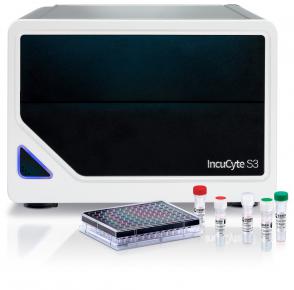Tumours are composed of cancer cells and different types of stromal cells. Stromal cells help to create the special microenvironment which surrounds a tumour and therefore they affect proliferation, invasion and metastasis of tumours. From the stromal cells, CAFs are the most abundant. Even though they exhibit a homogenous morphology, phenotypically and functionally the CAFs are very heterogeneous. This makes in vivo and in Vitro studies more difficult with an indication that the cells are coming from various parts of the body. In the study, two primary CAF cultures from lung adenocarcinoma were transduced with human telomerase reverse transcriptase mutant. They were imaged on Incucyte and the number of successful single-cell origin colonies was counted. Then the expression of genes associated with tumour progression pathways was evaluated by qRT-PCR. As the results of the observation part, the researchers observed changes in lifespan and proliferation depending on the gene that was transduced in the cells. They also evaluated the mRNA levels of seven growth-factor related genes and three genes which were previously associated with pathways promoting tumour growth to study these phenomena further. This was done on fourteen clones and it was showed that the level of mRNA expression differs drastically between them. The study helps to create a deeper understanding of factor which functionally influences tumours and their progression. The method that the researchers developed can be further used to study clones and observe their effect on the cancerous microenvironment.
See more











